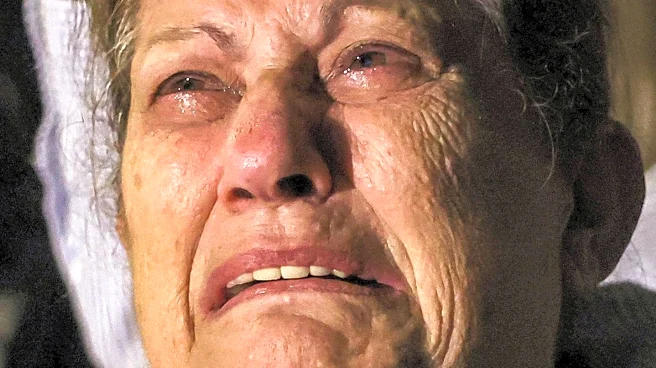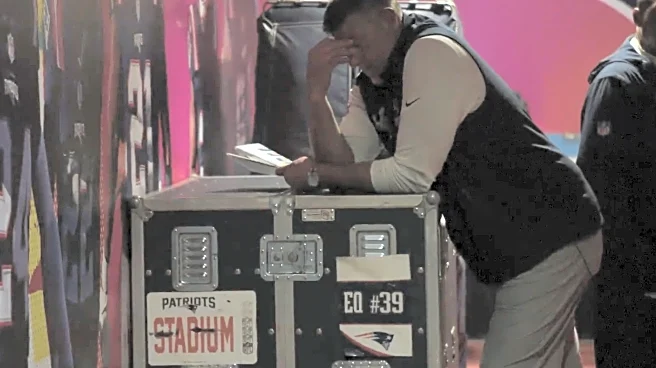What's Happening?
The article delves into the personal grief experienced by a Palestinian individual following the death of their grandmother, juxtaposed against the broader backdrop of regional conflict and suffering in Gaza. The narrative highlights the emotional struggle of mourning a personal loss while being acutely aware of the larger tragedies affecting Palestinians in Gaza due to ongoing military actions. The grandmother, Fatmeh Murrar, lived through significant historical events, including the Nakba and subsequent conflicts, which have shaped the collective Palestinian experience. The author reflects on the complexity of grieving in a world where personal sorrow feels overshadowed by public pain and atrocity.
Why It's Important?
This exploration of grief underscores the profound impact of geopolitical conflicts on personal lives, particularly within the Palestinian community. It highlights the psychological burden carried by individuals who must reconcile personal loss with the collective suffering of their people. The narrative sheds light on the concept of disenfranchised grief, where personal mourning feels illegitimate in the face of larger tragedies. This reflection is significant as it offers insight into the emotional and cultural dimensions of living in a conflict zone, emphasizing the resilience and defiance inherent in maintaining cultural practices and familial bonds amidst adversity.
What's Next?
The ongoing conflict in Gaza and the broader Middle East continues to affect the lives of Palestinians, with potential implications for future peace negotiations and humanitarian efforts. The personal stories of grief and resilience may contribute to a deeper understanding of the human cost of conflict, potentially influencing international perspectives and policy decisions. As the situation evolves, the focus may shift towards addressing the humanitarian needs of affected populations and exploring pathways to peace and reconciliation.
Beyond the Headlines
The article touches on the ethical and cultural dimensions of grief, highlighting how personal and collective mourning are intertwined in the Palestinian experience. It raises questions about the privilege of mourning and the uneven distribution of safety and memory, prompting reflection on the broader implications of conflict on cultural identity and human dignity. The act of cooking and sharing meals is portrayed as a form of resistance and preservation of cultural heritage, emphasizing the role of everyday practices in sustaining community and identity.










